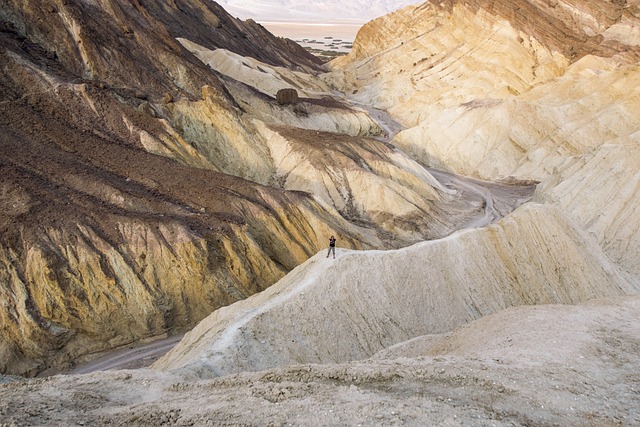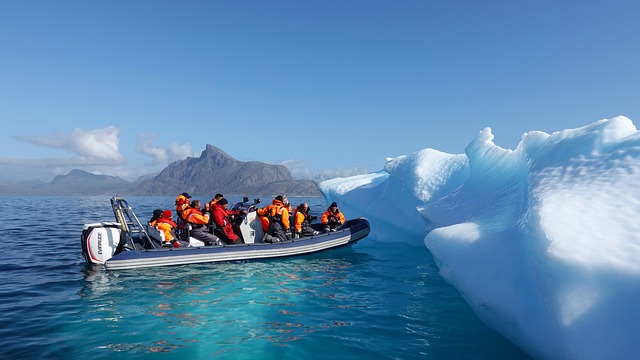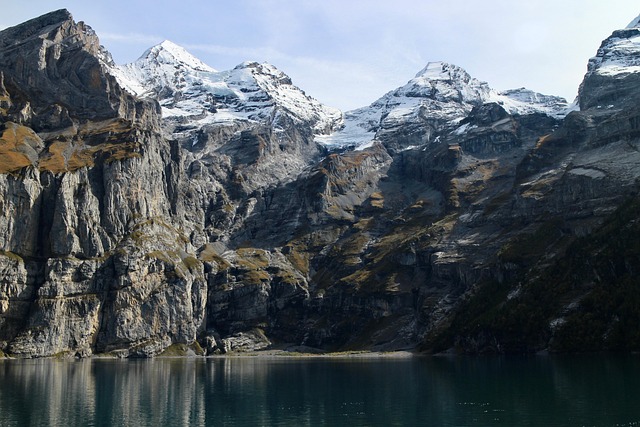Mastering wilderness survival skills is crucial in today's digital age for navigating remote areas safely. Beginners should opt for comprehensive courses covering shelter building, fire starting, navigation, and first aid in controlled environments with certified instructors. Advanced courses include rock climbing spots, offering physical and mental challenges, enhancing outdoor endurance, and teaching critical skills like wild food foraging and comprehensive first aid. These immersive workshops foster self-reliance, outdoor ethics, and a deeper connection with nature, preparing adventurers for unexpected situations in diverse landscapes.
“Uncover the art of wilderness survival through immersive courses and workshops—your gateway to mastering essential outdoor skills. In this comprehensive guide, we explore diverse aspects of preparedness, from fundamental knowledge to advanced techniques. For beginners, we dissect key considerations when selecting a course, emphasizing rock climbing spots that build endurance and technical prowess. Discover hands-on workshops offering practical experience in extreme settings. Delve into advanced topics like first aid and wild food foraging, ensuring you’re equipped for any unforeseen challenge.”
- Understanding Wilderness Survival: Essential Skills and Knowledge
- Choosing the Right Course: Factors to Consider for Beginners
- Rock Climbing Spots: Enhancing Outdoor Endurance and Technical Abilities
- Hands-on Workshops: Practical Experience in Extreme Environments
- Advanced Topics: From First Aid to Wild Food Foraging
- Preparing for the Unexpected: Mental Resilience and Emergency Preparedness
Understanding Wilderness Survival: Essential Skills and Knowledge

In today’s digital era, understanding wilderness survival is more crucial than ever. Beyond simply knowing how to find your way using a map and compass, essential skills include identifying safe drinking water sources, building shelter using natural materials, and navigating through challenging terrain like rock climbing spots. These fundamental knowledge sets are vital for anyone venturing into remote areas, ensuring safety and preparedness in case of emergencies.
Workshops and courses dedicated to wilderness survival equip individuals with practical techniques and confidence. They teach how to create fire without matches or lighters, recognize edible plants and avoid poisonous ones, and navigate using celestial bodies. Such experiences not only foster self-reliance but also deepen appreciation for the natural landscape, encouraging responsible outdoor ethics.
Choosing the Right Course: Factors to Consider for Beginners

When starting your wilderness survival journey, selecting the right course is paramount to gaining valuable skills in a safe and structured environment. Beginners should look for comprehensive programs that cover a range of essential topics such as shelter building, fire starting, navigation, and first aid. It’s crucial to consider the instructor’s experience and certifications; experienced professionals can provide real-world insights and ensure your learning is effective.
Additionally, the course should offer hands-on practice in various outdoor settings, ideally including rock climbing spots for developing physical and mental resilience. The blend of theoretical knowledge and practical application ensures you’re prepared for real-life survival scenarios. Look for reviews and testimonials from previous students to gauge the course’s effectiveness and the overall learning experience.
Rock Climbing Spots: Enhancing Outdoor Endurance and Technical Abilities

Wilderness survival courses often incorporate rock climbing spots as a way to challenge participants and enhance their outdoor endurance and technical abilities. These climbing opportunities provide an exhilarating and practical experience, teaching individuals how to navigate through varied terrain and improve their strength and agility. By tackling different rock faces, learners gain a deeper understanding of their physical capabilities and learn to push beyond perceived limits.
Rock climbing spots offer a unique blend of mental and physical challenges, forcing participants to strategize, problem-solve, and build confidence in high-pressure situations. The skills acquired during these climbs translate directly into survival scenarios, where the ability to scale obstacles can mean the difference between finding shelter or accessing vital resources. Many survival workshops use rock climbing as a cornerstone activity to foster resilience, teamwork, and a profound connection with nature.
Hands-on Workshops: Practical Experience in Extreme Environments

Wilderness survival courses offer a unique opportunity to immerse yourself in challenging environments and learn invaluable skills. One of the most engaging aspects is hands-on workshops, which take place in diverse settings like rugged mountainsides or dense forests—often right at popular rock climbing spots. These practical experiences are designed to teach participants how to navigate treacherous terrain, build shelters using natural resources, and secure food sources, all while pushing physical and mental limits.
Through interactive exercises, you’ll learn essential techniques for survival in extreme conditions. For instance, you might practice building a fire with minimal tools or signaling for rescue using natural signals. Such workshops not only enhance your understanding of wilderness survival but also foster a deeper connection with nature, ensuring you’re prepared to face any outdoor challenge that comes your way.
Advanced Topics: From First Aid to Wild Food Foraging

In advanced wilderness survival courses, students delve into a wide range of critical skills that extend beyond the basics. One such topic is first aid, where participants learn to handle emergencies in remote settings, including wound care, treatment for hypothermia, and recognizing signs of heatstroke. This comprehensive training ensures individuals are prepared to respond effectively during their outdoor adventures.
Additionally, these courses often include wild food foraging as a key module. Instructors teach students how to identify edible plants, mushrooms, and berries in the wilderness, providing sustainable nutrition options away from conventional rock climbing spots. This skill not only enhances survival chances but also fosters a deeper connection with nature’s bounty.
Preparing for the Unexpected: Mental Resilience and Emergency Preparedness

In wilderness survival courses, preparing for the unexpected is a cornerstone of mental resilience and emergency preparedness. These skills are crucial, especially when navigating remote areas like rock climbing spots, where help can be hours or even days away. Participants learn to anticipate potential hazards, from unpredictable weather patterns to navigational challenges, and develop strategies to mitigate risks. Mental toughness is cultivated through simulated emergency scenarios, encouraging students to remain calm under pressure and make clear, effective decisions.
Emergency preparedness goes beyond mental preparation; it involves equipping oneself with essential survival tools and knowledge. Students learn techniques for signaling for help, building temporary shelters, purifying water, and identifying edible plants—all vital skills that can mean the difference between safety and danger in remote environments. By combining psychological resilience with practical survival tools, participants gain the confidence to face unexpected situations head-on, ensuring they’re ready for any adventure, be it scaling a peak or exploring untamed wilderness.
